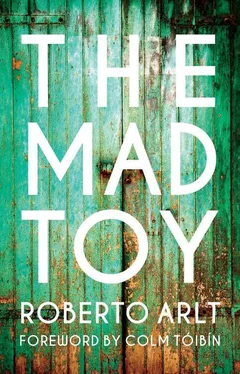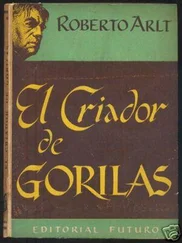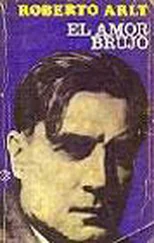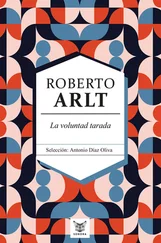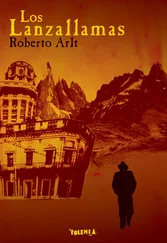Sitting on the edge of the bed was my mother.
She bent her head over me. Her eyelashes were wet, and her sucked-in cheeks seemed dug out of a wrinkled block of tormented marble.
Her voice trembled:
‘Why did you do it?… oh, why didn’t you tell me everything? Why did you do it, Silvio?’
I looked at her. I met a face that was a terrible image of pity and remorse.
‘Why didn’t you come?… I wouldn’t have said anything. It’s fate, Silvio. What would have become of me if the revolver had fired properly? You’d be here now, with your poor little cold face… Oh, Silvio, Silvio!’ And a heavy tear flowed down the red bag under her eye.
I felt night falling in my spirit and I leant my head on her lap, as I thought I would wake up in a police cell: in the fog of my memory I saw a circle of uniformed men waving their arms above me.
Chapter 4. Judas Iscariot
Monti was an active and a noble man, as excitable as a swashbuckling soldier of fortune, skinny as an impoverished gentleman. His penetrating gaze did not invalidate the ironic smile that curved his thin lips, lips that had the silky threads of his black moustache to overshadow them. When he got angry his cheeks would redden and his lower lip would tremble down as far as his sunken chin.
The office and paper store of his business consisted of three rooms that he rented from a Jewish furrier, and was separated from the Hebrew’s stinking storeroom by a corridor that was always filled with dirty red-headed kids.
The first room was something along the lines of an office-cum-fine paper display room. Its windows let onto Rivadavia Street and the passers-by could see, neatly lined up in a pine display case, reams of salmon-coloured paper, green paper, blue and red paper, rolls of impermeable stiff marbled paper, blocks of silk paper and what was called ‘butter’ paper, cubes of labels with multi-coloured flowers on them, sheaves of rough-surfaced paper with flowers and a watermark in the form of a pale vase.
On the off-blue wall a print of the Gulf of Naples showed the lacquered blue sea and the dark coast sown with little white squares: the houses.
In this room, when he was in a good mood, Monti would sing in his clear and tuneful voice.
I liked hearing him. He sang with feeling; it was clear that by singing he called up the spaces and daydreams of his homeland.
When Monti hired me on commission, giving me a set of samples of paper classified by quality and price, he said:
‘Okay, time to sell. Each kilo of paper gets you three centavos commission.’
Hard beginnings!
I remember that for a whole week I spent six hours per day walking pointlessly. It was unreal. I didn’t sell a single kilo of paper after walking forty-five leagues. In desperation I went into greengrocers’ shops, into stores and warehouses, I went round the markets, I stood outside butchers and pharmacies, but all in vain.
Sometimes people, extremely politely, would send me to the devil, others would tell me to come back next week, others would claim that ‘I’ve already got a salesman who’s been serving me for a while’, others would refuse to see me, some would say that my merchandise was far too expensive, a few would say that it wasn’t of a good enough quality, and some strange people that the quality was too high.
At midday, when I got back to Monti’s office, I would collapse onto a column made of stacked reams and say nothing, dulled by fatigue and disappointment.
Mario, another salesman, a sixteen-year-old slacker, tall as a poplar, all arms and legs, laughed at my useless travails.
How shameless Mario was! He looked like a telegraph pole with a tiny head on top, and a fabulous forest of curly hair on top of the head. He walked with huge strides, with a red leather briefcase under one arm. When he got to the office he would throw the briefcase into a corner and take off his hat, a round derby that was so greasy you could use it to lubricate the axle of a cart. He was a devil for selling and was always happy.
Leafing through a dirty notebook he would read out the long list of orders he had made, and opening his whale’s mouth he would laugh until you could see the red back of his throat and two rows of protruding teeth.
In order to pretend that he was so happy that his stomach hurt, he would grasp it with both hands.
Sitting above the desk drawers, Monti would look at us with an ironic smile. He would pinch his wide forehead in one hand, he would rub his eyes as if trying to get rid of things that worried him, and then he would say:
‘There’s no need to get downcast, dammit. You want to be an inventor and you don’t know how to sell a kilo of paper.’ Then he would continue, ‘You just have to keep at it. All businesses are like that. They won’t deal with you until they know you. They tell you that they’ve already got everything they need. It doesn’t matter, you just keep coming back until the owner gets used to you and ends up buying something. And always be gentile , because that’s how things have to be.’ And then he would change the subject and add: ‘Come and have coffee with me this afternoon. We’ll have a chat.’
One night I went into a pharmacy in Rojas Street. The pharmacist, a bilious man covered in pockmarks, looked at my wares, then he spoke, and seemed to me an angel:
‘Send me five kilos of silk paper, a selection, twenty kilos of extra-smooth paper and make me twenty thousand envelopes that say “Boric Acid”, “Calcinated Magnesium”, “Cream of Tartar”, “Logwood Soap”: five thousand of each. The paper needs to be here first thing on Monday morning.’
Overcome by joy I took note of the order, bowed to the seraphic pharmacist and got lost in the streets. This was my first sale. I had earned fifteen pesos commission.
I went into the Caballito Market, that market that always reminded me of the markets in the novels of Carolina Invernizio. An obese sausage-seller with a cow’s face, whom I had bothered on past occasions but always without success, shouted out to me as he brandished his knife over a block of pig fat.
‘ Che , send me two hundred kilos of special cut, first thing tomorrow, no fail, at thirty-one.’
I had earned four pesos, even though I had taken the price down by one centavo a kilo.
Infinite joy, an unreal Dionysiac joy, lifted my spirit up to the heavens… and then, comparing my drunkenness with that of the heroes in the novels of D’Annunzio, those heroes whom my boss criticised for setting themselves up too high, I thought:
‘Monti is an idiot.’
Suddenly I felt someone touch my arm; I turned round quickly and found myself face to face with Lucio, that same distinguished Lucio who had been a member of The Club of the Midnight Gentlemen.
We greeted each other warmly. I hadn’t seen him since that hazardous night, and now here he was in front of me, smiling and looking all over the place as was his habit. I saw that he was well-dressed, with better shoes and better accoutred: there were false gold rings on his fingers and a pale stone in his tiepin.
He had grown, he was a robust layabout disguised as a dandy. The complement to this figure of a scrubbed-up braggart was a felt hat, which he wore pulled ridiculously low over his forehead, down to his eyebrows. He affected an amber cigarette holder, and, acting like a man who knows how to treat his friends, he invited me after our first greetings were over, to come and have a bock with him in a nearby beerhall.
When we had sat, and after Lucio had drunk his beer in a single gulp, my friend said in his hoarse voice:
‘So what do you do?’
‘What about you?… I see you’ve become a dandy, a real character.’
Читать дальше
